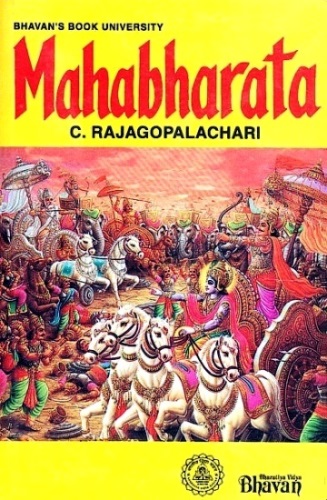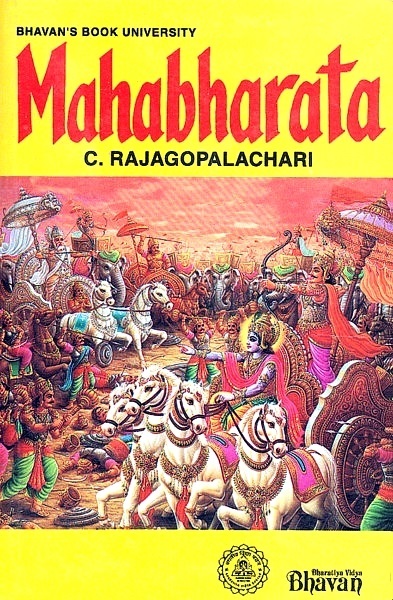
Should we keep epic Mahabharata at home or not?
Should we keep epic Mahabharata at home or not?
The other day, someone during the course of discussions said, “The Mahabharata should not be kept at home”. But he could not give any logic behind his version as he had only heard it and uttered that it is a book of war without going in detail about this belief.
Anyhow, it created a curiosity among me and I decided to study this issue and make my opinion.
Let us talk about the books. Much has been said about books like…
Challenge books, not brains because brains can think and produce more books based on your feedback;
Books are like a garden, which you can take anywhere with you.
There is no friend as loyal as a book.” …
“Never trust anyone who has not brought a book with them.” …
“The reading of all good books is like conversation with the finest (people) of the past centuries.”
“Books are the mirrors of the soul.”
“You will learn most things by looking, but reading gives understanding. Reading will make you free.”
There are different versions about keeping the Mahabharata at home. So far as the epic Mahabharat is concerned, it symbolise the victory of Dharma over Adharma. At the first hand, it looks to be myth that it should not be kept at home. In fact, this myth is made up by and spread by people who do not understand the meaning of the Mahabharata.
The Mahabharata actually reminds us to keep kula-reeti, kula-dharma (Dharma of the clan, family, race, varna, etc) alive within our families. This is what allows families to stay together, their family tapasya. However, when these traditions are broken and adharma is born in the family, then the family breaks apart, as happened in the Mahabharata.
This is what allows families to stay together, their family tapasya. However, when these traditions are broken and adharma is born in the family, then the family breaks apart, as happened in the Mahabharata.
We see, when people like to keep Gita at home as we how Krishna offers emotional counsel to the unhappy Arjuna. Centrally, he tries to give Arjuna a long perspective on life, how to live it, and its often unpleasant duties, and assures him of his total spiritual support.
Mahabharata – Many people in North India do not keep a copy of the Mahabharata at home because of a local belief that, as a book of war, it will cause trouble in the family. What they may keep are the Bhagavad Gita and the Ramayana. But is the Ramayana also not a story of family politics leading to trouble? Moreover, the Mahabharata is alternatively known as ‘Jaya’ or Victory, which is wholly positive.
Indeed, the epic is a marvellous treatise on anger management and a stark guide on what we could do and must not do. A striking example is the contrast between Duryodhana and Yudhishthira.
Every character has to say something for the betterment of life. It depends on the taker, as to who much he grasp out of it. Like, in the middle of a war story we hear the question, “What is the highest duty in the world?” and Yudhishthira’s moving answer, “To abstain from injury is the highest of all duties.” Yudhishthira’s sensible, insightful nature shines through in this passage and sets a gold standard of good behaviour worthy of a ‘Dharmaputra’.
Frankly speaking, book is a book and so far as the books are concerned, they are definitely the outcome of labour of a writer, who has put all his efforts to give the best to its readers, by virtue of his experience and learning from the people in his contact at various stages.
The Mahabharata is definitely allowed to be kept at home; in fact, every house should have a copy of the Mahabharata in it to symbolise the victory of Dharma over Adharma, the entire symbolism of the Mahabharata. Like any other book, every book including the Mahabharata give some message and put you wiser to make up your own opinion.






1 Comment
Rahi
Good one.
Comments are closed.